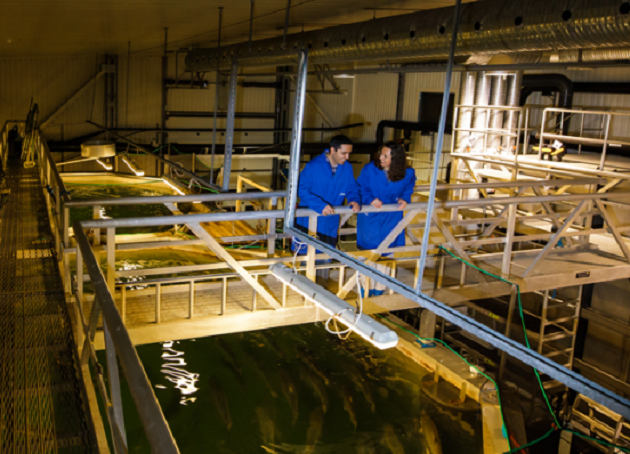
News
Industry update
Sustainability
Research
Nofima ramps up RAS research
May 26, 2020 By Nestor Arellano

Norwegian fisheries and aquaculture research body, Nofima is kick starting operations in closed and semi-closed facilities to boost research activities despite the disruption of the industry by the COVID-19 pandemic.
Nofima’s research station in Sunndalsøra, øre og Romsdal county, Norway, is spearheading the initiative and is “fully booked until the summer of 2022,” according to a press release from the research organization.
Nofima expects that by 2021, 20 new tanks with separate recirculating aquaculture systems (RAS) will be completed and installed at the station.
“The Norwegian aquaculture industry is investing heavily in closed and semi-closed facilities,” Øyvind Fylling-Jensen, chief executive officer of Nofima, said.”These investments are being made in terms of fry, smolt and fish farms.”
Jensen admitted there are technological and biological challenges posed by the current situation but added that he felt there is also “substantial optimism.”
“That’s why it’s only natural for us to facilitate even more research into RAS technology,” the Nofima executive added.
In the space of just a few years, the aquaculture industry has made major changes to the way that salmon is produced during the fry stage, according to Nofima. “Throughput technology was the standard for smolt production until recently, but today it is primarily RAS that is being used in the aquaculture industry.”
“The need for RAS research has increased in recent years, and is relevant to the entire aquaculture research field, including Nofima’s work in feeding and nutrition,” said Bente Torstensen, director of Nofima’s aquaculture division.
Another site in the north – the Tromsø Aquaculture Research Station – will also develop a new RAS section.
The Aquaculture Research Station is owned by Nofima and UiT The Arctic University of Norway. Both in Sunndalsøra and in Tromsø, the respective county municipalities have agreed to provide significant investment funds. A total of around $5.8 million is being invested at Sunndalsøra and in Tromsø.
Print this page